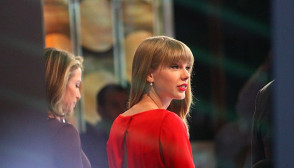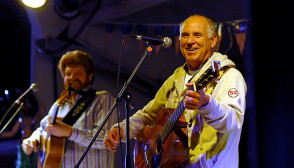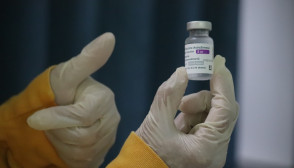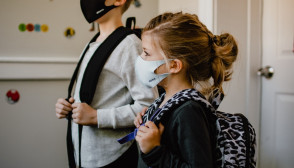PARIS (Reuters) -President Emmanuel Macron tested positive for the coronavirus on Thursday, prompting a track-and-trace effort across Europe following numerous meetings between the French leader and EU heads of government in recent days.
Macron, 42, was running France remotely after going into quarantine in the Elysee Palace, the presidency said.
An Elysee official described Macron as tired and having a cough, and said that it was not excluded that he be moved to a presidential retreat close to the Palace of Versailles to rest.
In the early evening , Macron spoke to a conference on French foreign aid policy via video link. Dressed in a roll-neck sweater and suit jacket, the president sat behind a desk and wore a facemask.
His wife Brigitte tested negative but was also self-isolating.
"This diagnosis was made following a PCR test performed at the onset of the first symptoms," Macron's office said, declining to give further details of his condition or the symptoms he had.
Macron will cancel all upcoming trips including a Dec. 22 visit to Lebanon where he has led international efforts to resolve a deep-rooted political crisis.
Closer to home, Macron's COVID-19 infection spurred other leaders to take their own tests.
Macron joined all but two of the European Union's 27 leaders at a summit in Brussels late last week to discuss climate change, the EU budget and Turkey.
The Elysee official said it was almost certain Macron was infected at the summit given the timing of his symptoms.
TESTS
Macron, German Chancellor Angela Merkel, Italian Prime Giuseppe Conte and others were seen initially mingling in the summit room with their face masks on. German officials said Merkel wore a mask at the summit and complied with COVID rules.
The German government said Merkel tested negative for the coronavirus after the EU summit.
More recently, Macron had lunch with European Council President Charles Michel, Spanish Prime Minister Pedro Sanchez and OECD chief Angel Gurria, who is 70, on Monday. He also held talks with Portuguese Prime Minister Antonio Costa on Wednesday.
Sanchez tested negative for COVID-19 but has suspended all public activities and will quarantine until Dec. 24, his office said. Irish Prime Minister Micheal Martin, who took a test out of precaution, also received a negative result.
Costa was in self-isolation and awaiting the results of a test, though displaying no symptoms, his office said.
Early in the pandemic, Macron was swift to adopt the 'namaste' greeting (pressing palms together and bowing slightly). But more recently he reverted to more tactile greetings that jarred with social-distancing rules.
MILD SYMPTOMS
Macron's illness comes as negotiations between Britain and the EU over a post-Brexit deal near their crunch point, with France saying it would rather veto a bad deal than sacrifice its fishermen.
British Prime Minister Boris Johnson sent Macron his best wishes. "Sorry to hear my friend @EmmanuelMacron has tested positive for coronavirus. We are all wishing you a speedy recovery," Johnson said on Twitter.
Johnson himself caught COVID-19 in March and fell gravely ill. He tried to work through the illness but ended up in intensive care.
Macron lives a healthy, active lifestyle, his aides say. He exercises regularly and does not smoke.
France has one of the highest COVID-19 death counts in Western Europe. The disease has killed nearly 60,000 people and Macron's positive test comes just after France replaced a nationwide lockdown with an overnight curfew, even as new cases show signs of ticking higher once again.
Government spokesman Gabriel Attal said Macron detected the first symptoms late on Wednesday, hours after chairing a cabinet meeting.
Prime Minister Jean Castex will also self-isolate after coming into contact with Macron over the last few days, although he has tested negative, his office said.
Political party chiefs from France's lower house of parliament, the National Assembly, were also in isolation as they had a lunch with Macron earlier this week.
(Reporting by Dominique Vidalon; Writing by John Irish and Richard Lough; Editing by Alexandra Hudson, Mike Collett-White and Mark Heinrich)










